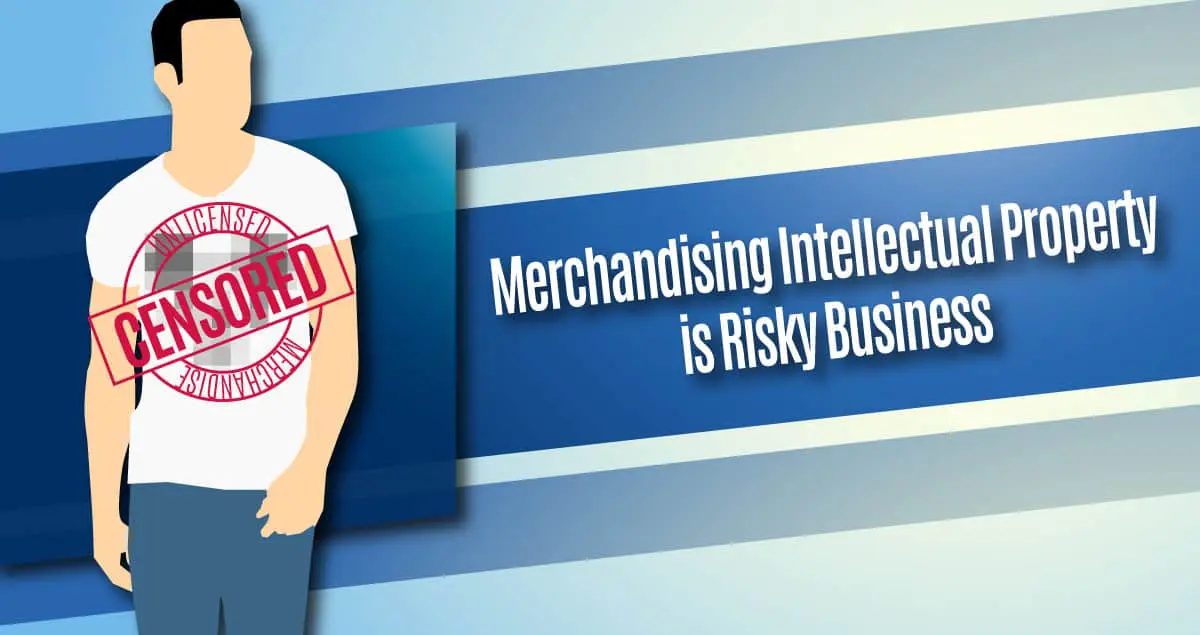Merchandising Intellectual Property is Risky Business
by Chris McCray | May 15, 2019
It takes a dedicated person to stand in line a day or two in advance just to buy tickets to a movie – a true fan. From Star Wars to the Marvel Universe, this phenomenon has been enticing fans to do just that two to three times a year.
Fans not only want to invest their time into making sure they are the first to see a film or event, they are willing to invest their money, sometimes thousands of dollars, on buying items with their favorite characters on them.
Mel Brooks said it best in Spaceballs, “Merchandising, merchandising! Where the real money from the movie is made.”
Entrepreneurs developing or investing into that “next big thing,” may look at fandom as an easy way to get their new product into the market. From Popsockets, to Bobbleheads, to numerous items sold on Etsy, no matter how big or small the company may be, business owners are trying to cater their products to meet fans’ desires.
Plastering an image of Darth Vader or Elsa on your “next big thing” may seem very appealing, but before you apply this strategy, it is important to know the risks involved.
Disney is known for doing frequent web sweeps targeting distributers selling unlicensed merchandise. If you think you can just avoid putting a few princesses or a beloved mouse on your products and be safe, you need to remember that Disney also owns Pixar, Star Wars, Marvel Studios, and now Fox.
When Disney finds trademark offenders, their responses have ranged from simple cease and desist letters to million-dollar lawsuits for copyright infringement in severe or frequent violation cases. It’s not just Disney. Major sports teams and large franchises do this sweep as well.
But don’t let this deter you from seeking out opportunities to do it the proper way. Obviously, there are ways to sell your products with these beloved characters on them, but you will have to pay royalties.
Here are five things to keep in mind when obtaining a merchandising license:
- Seek legal representation. The first thing you should do is get a lawyer to help you negotiate any contract. Preferably seek counsel who specializes in copyright law and contracts. This will come in handy if you are dealing with several franchises.
- Contact the right person. Research and contact the franchises’ licensing agent. This title may vary depending on organization, but every company has one. Disney makes it extremely easy to do this by providing resources and answers to frequently asked questions on this website.
- Be prepared. Have a game plan regarding manufacturing and distributing the product set in place before entering into negotiations with a copyright owner. Refer to the four Ps as a reference guide for your plan, answering questions like: Where will this product be produced? Where will it be sold and for what price? How will it get there? How will it be marketed? This will show that you have done your homework and are ready to go as soon as you get the owner’s permission. Alternatively, the owner may counter-propose a more efficient process leveraging their own resources/network. Simply having it as part of the initial contract can go a long way.
- Negotiate a fair deal for all parties. Though you may have developed an amazing new product, you must realize that you’re seeking out their intellectual property that they have spent years and millions of dollars investing in. Though you may feel entitled to get a large share, you have to realize that their character may be the single driving factor when a consumer buys your product. Make sure that investment is worth it in the end.
- Make sure you know exactly what the licensing agreement entails. Make sure the agreement answers the following questions in writing: Will you be providing royalties per unit sold, or is there a flat fee? Is there a time limit on the license? Can you use their logos and images on your website or marketing materials? Are they willing to sell your product in their stores or theme parks?
Working with these large franchises takes a lot of foresight and planning. Many entrepreneurs feel the cost is worth it in the long run. It is up to you to determine if it is right for your business.





